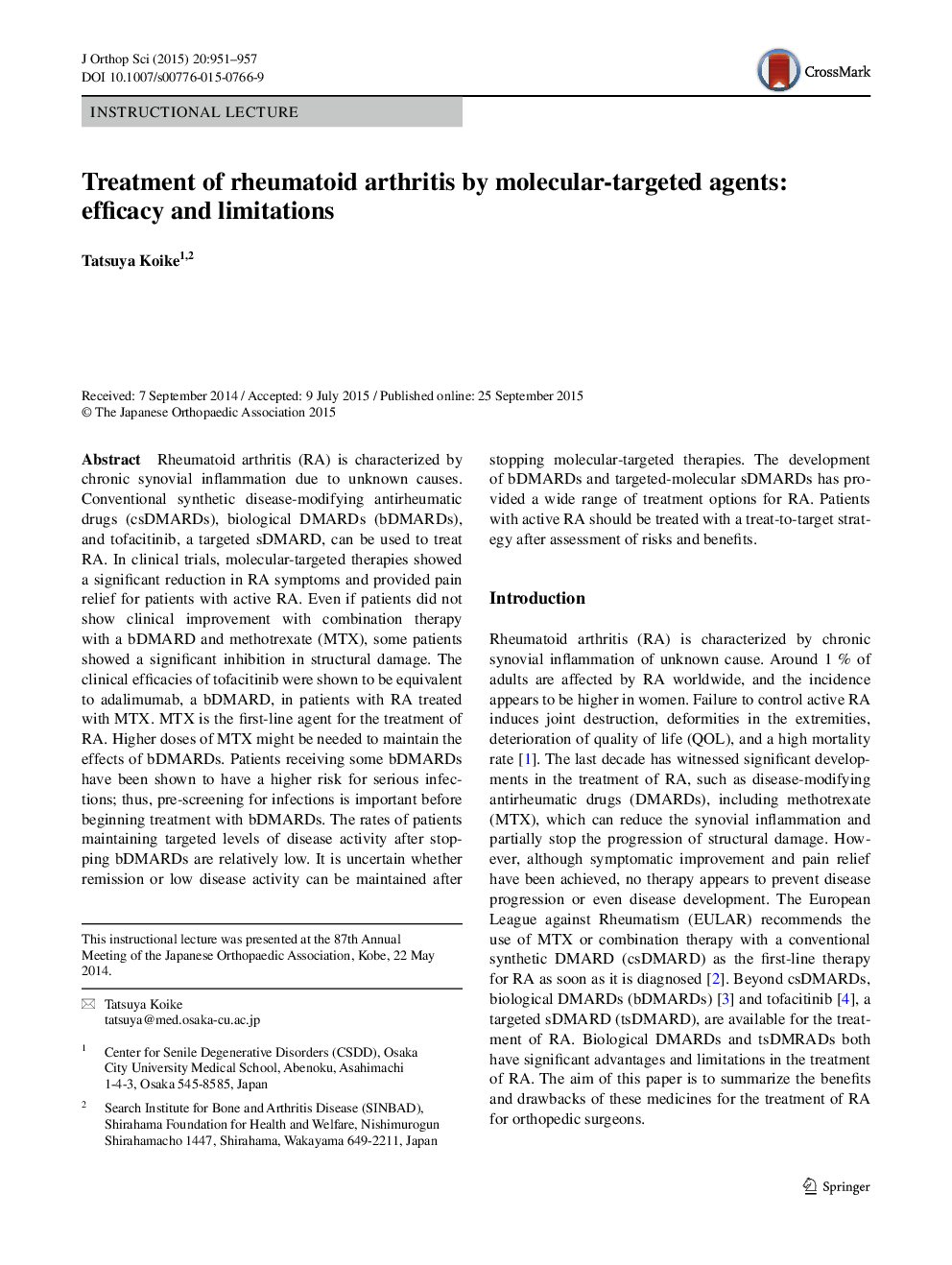| کد مقاله | کد نشریه | سال انتشار | مقاله انگلیسی | نسخه تمام متن |
|---|---|---|---|---|
| 8800641 | 1266827 | 2015 | 7 صفحه PDF | دانلود رایگان |
عنوان انگلیسی مقاله ISI
Treatment of rheumatoid arthritis by molecular-targeted agents: efficacy and limitations
ترجمه فارسی عنوان
درمان آرتریت روماتوئید با عوامل مولکولی هدف: اثربخشی و محدودیت
دانلود مقاله + سفارش ترجمه
دانلود مقاله ISI انگلیسی
رایگان برای ایرانیان
موضوعات مرتبط
علوم پزشکی و سلامت
پزشکی و دندانپزشکی
ارتوپدی، پزشکی ورزشی و توانبخشی
چکیده انگلیسی
Rheumatoid arthritis (RA) is characterized by chronic synovial inflammation due to unknown causes. Conventional synthetic disease-modifying antirheumatic drugs (csDMARDs), biological DMARDs (bDMARDs), and tofacitinib, a targeted sDMARD, can be used to treat RA. In clinical trials, molecular-targeted therapies showed a significant reduction in RA symptoms and provided pain relief for patients with active RA. Even if patients did not show clinical improvement with combination therapy with a bDMARD and methotrexate (MTX), some patients showed a significant inhibition in structural damage. The clinical efficacies of tofacitinib were shown to be equivalent to adalimumab, a bDMARD, in patients with RA treated with MTX. MTX is the first-line agent for the treatment of RA. Higher doses of MTX might be needed to maintain the effects of bDMARDs. Patients receiving some bDMARDs have been shown to have a higher risk for serious infections; thus, pre-screening for infections is important before beginning treatment with bDMARDs. The rates of patients maintaining targeted levels of disease activity after stopping bDMARDs are relatively low. It is uncertain whether remission or low disease activity can be maintained after stopping molecular-targeted therapies. The development of bDMARDs and targeted-molecular sDMARDs has provided a wide range of treatment options for RA. Patients with active RA should be treated with a treat-to-target strategy after assessment of risks and benefits.
ناشر
Database: Elsevier - ScienceDirect (ساینس دایرکت)
Journal: Journal of Orthopaedic Science - Volume 20, Issue 6, November 2015, Pages 951-957
Journal: Journal of Orthopaedic Science - Volume 20, Issue 6, November 2015, Pages 951-957
نویسندگان
Tatsuya Koike,
